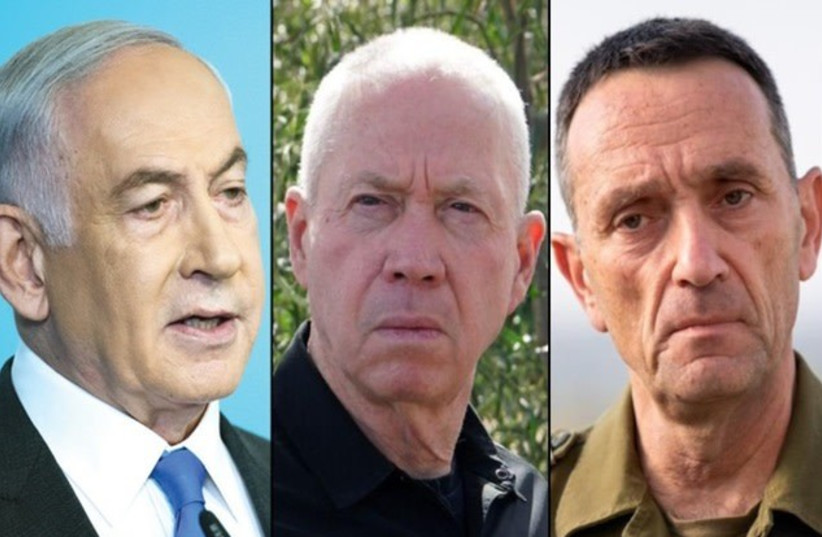Arab-speaking social media accounts showed much interest in the High Court of Justice’s ruling to draft eligible haredi (ultra-Orthodox) men to the IDF. Many cited Israeli military leadership’s statements regarding the shortage of manpower following the war, attributing this status to the “success of the resistance,” such as users who claimed that this decision came to compensate “the thousands of soldiers who fell in Gaza and the tens of thousands expected to fall in Lebanon.”
Others offered their analysis on what they deemed as the political and social implications, cheering on what they deem early signs of the dismantling of social cohesion and a demise of the ruling coalition, which in the view of many is read as an “achievement.”
Jordanian writer Yaser Zaatreh deemed the decision a “legal drama in the (Zionist) entity,” gloating that Israel’s “conflicts explode one by one,” while “the heroism of our (Palestinian) people exposes their fragility, and their supportive ‘West’ is in retreat.” Zaatreh concluded: “These are the ways of decline: internal division and external pressure.”
Many revel in Israel's crises
Ali Al-Sanad, a Kuwaiti anchor at Al Jazeera, published a video explaining the history of the haredi population, adding that “the Israeli army suffers from an abrupt shortage in personnel… for which the army is in need of this decision to enlist haredim in the army. This will escalate tensions between the leadership of the military and the judges on one hand, and the leadership of the right-wing government on the other, also intensifying the internal tensions. And Inshallah they will intensify more and more.”
Ahmed Al-Kamali, a former Iraqi diplomat, claimed that the decision “will escalate the state of tension prevailing on the home front, especially after the Chief Rabbi threatened the Sephardic Haredim to emigrate abroad in response to the decision.”

Palestinian writer Saeed Ziad claimed that “the recruitment crisis represents the most dangerous crisis in Israel, which could lead to a real division, in which the State of Israel becomes two states… This war has exacerbated it and made society divided among itself, in a way that may destroy the existence of the government from its foundations.” A commenter replied: “Excellent, good news. They also have enough weapons to kill themselves. Oh God, may a civil war take place between them which will not leave any of them.”
Hassan Eslayeh, a Gaza-based reporter, shared an in-depth analysis claiming that these developments can affect the Netanyahu government in two different scenarios, either one of the haredi parties preserve the government in the hope that there will be some development that may contribute to changing the Israeli popular reality demanding their recruitment; or attempting to enact a law that guarantees partial and non-comprehensive conscription of the haredim while preserving part of the budgets and allocations for religious institute students. In any case, Eslayeh concluded, “Netanyahu is in a real crisis that may not be the end of his government, but it may necessarily be the beginning of the end.”
Popular blogger Tamer reported an alleged “rebellion among soldiers against the political leadership,” claiming that “dozens of Israeli reserve soldiers announced that they would not return to military service in the Gaza Strip, even if they were to be punished,” placing the blame on economical burdens, injuries and psychological problems, and the lack of haredi conscription. In another tweet, Tamer projected “political conflicts with the judiciary,” claiming that “the government’s implementation of this decision may lead to its downfall, and at the same time, failure to implement it means its rebellion against the judiciary’s decisions.”
A user named Kassim posted a long analysis that regarded the ruling as “long-awaited news” and one of the “blessings of the 7th of October.” He argued that “this decision will literally divide the Israeli public” and projected “bloody clashes between Haredim and the government, leading the government to collapse. Another projection included “a clash between the opposition and supportive movements, and Netanyahu’s loss of a large supportive movement,” concluding: “May God bless the 7th of October and its people. Its aftershocks are very great, and by Allah, it will appear over time that it was truly a flood and an earthquake.”
Ahmed, a Spain-based popular travel blogger, celebrated the decision and added: “With this decision, Israel will enter another spiral of conflict between the secular Zionist face of the state and the Jewish face of the state.”
A user named Mohammad wrote: “The army lacks soldiers and there is no recruitment unless it relies on mercenaries from countries around the world, and after the stories of the International Tribunal, I think providing an army of mercenaries will be difficult. After the conscription law crisis, the Jews will refuse to conscript their children, while the Haredim are exempt.”
